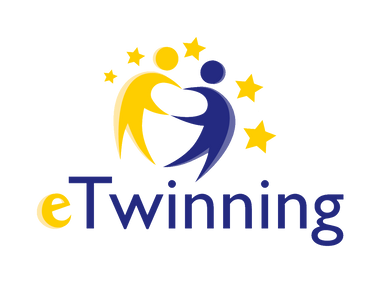
results of the initial evaluation for teachers
1st Kindergarten of Kitsi
2023-2024
PARTICIPATION
29 teachers participated in the research for the initial evaluation of the project!
Have you ever participated in an e-Twinning project before?

A significant number of respondents, corresponding to 65.5%, have previous experience of participating in e-Twinning projects.
This indicates a relatively high level of familiarity and commitment to e-Twinning activities.
Also, the responses show a positive attitude towards cooperative and international educational initiatives. This experience can contribute to the success of the project by leveraging the collective knowledge and ideas of teachers who have previously participated in similar initiatives.
If yes, what were the loud and weak points of the previous project you participated?
Experience with e-Twinning projects indicates a number of strengths, including effective collaboration, communication, innovation and educational benefits. Challenges related to curriculum alignment, workload and time management are recognized but often outweighed by the positive impact of the projects on both teachers and students.
How would you describe your initial impressions of the eTwinning project "Space Voyagers"?

The vast majority of participants had a positive initial impression of the project.
A small percentage had neutral or somewhat positive impressions, possibly indicating some initial reservations or uncertainties.
What aspects of the project excite you the most?


Feedback received highlights participants' enthusiasm and positive outlook on various aspects of the project. collaboration stands out as a recurring theme, and enthusiasm for digital elements, organized planning, and its connection to the school. Reference is made to "Luna" a notable item among the participants.
Do you have a clear understanding of the project goals?


The majority of participants feel confident in their understanding of the project's objectives, as shown by the high percentage of 5 ratings.
A significant number of respondents also perceive a good level of clarity, as shown in the 4 ratings.
The small percentage of 3 ratings suggests that there is a minority of participants who may require additional clarification or information about project goals.
Based on what you know about e-Twinning projects
how do you rate yourself?

The distribution of self-ratings indicates a different range of confidence levels among participants.
A significant number of respondents feel confident in their understanding of e-Twinning projects, with a significant proportion scoring 4 or 5.
There is a smaller but notable percentage of participants who may have a more moderate or uncertain assessment of their knowledge about
e-Twinning projects.

Based on what you know about digital learning tools how do you rate yourself?
The general feeling of the participants is a high level of confidence in their competence in digital learning tools. The majority of respondents state that they have a high or very high level of proficiency, indicating a strong comfort and familiarity with digital learning technologies. In addition, a smaller but still notable segment recognizes a moderate level of proficiency. This suggests that, in general, participants feel well equipped to engage with and effectively navigate digital learning tools.

Are there special technology-related training or support needs?

The majority of respondents (75.9%) are unsure of technology-related training or support needs, while a smaller percentage (10.3%) explicitly acknowledge having such needs. Additionally, 13.8% say they have no specific technology-related training or support needs, and 3.4% are unsure.
What are your expectations for the results of the project?

Many respondents express multiple expectations for the project.
A significant percentage (62.1%) expects the project to enhance education by sharing ideas, practices, and collaborating with teachers from different countries.
A substantial portion (55.2%) looks forward to practicing on digital learning tools.
About 37.9% of respondents expect all the mentioned outcomes.
A smaller percentage (13.8%) anticipates breaking their routine as a result of the project.
Are there any potential challenges or concerns you foresee
when implementing the eTwinning project?






A significant percentage (24.1%) foresees no specific challenges or concerns.
Participants who are new to the experience express concerns about getting everything right and potential communication issues.
Some concerns revolve around language barriers, technical difficulties
and time commitment.
Challenges related to students are mentioned, such as meeting their expectations and responding to their needs.
Challenges related to parental involvement are mentioned.
Communication, both linguistic and technical, is a common concern.
The participants are careful to meet the expectations of the students
and meet the needs of the project.
In what ways do you expect personal and professional development through your participation in this eTwinning project?





Participants expect personal and professional growth through improved communication skills, technological competence,
and exposure to a variety of educational practices.
There is a strong emphasis on the exchange of ideas and collaboration with global colleagues as a means of enrichment.
An improvement in language skills, both in English
and in the mother tongue, is expected.
The use and understanding of digital learning tools are highlighted as areas for development.
The expectation is to deepen collaboration and innovation, leading to a broader understanding of pedagogical knowledge.
How did you feel when you met your partners for the first time?

The majority of participants expressed excitement when meeting their partners for the first time, with a significant proportion (79.3%) sharing this sentiment.
A small percentage (3.4%) described their feelings as excited and curious, similar to a child's curiosity.
Only a minimal percentage (2%) reported feeling anxious.
A small number (3%) used terms such as "cool", suggesting a calm or cool-headed reaction.
Κey words!
a planned project
creativity, interaction
collaborative tools and collaboration.
participation, collaboration, the exchange of ideas,
support
the students' excitement
the exchange of activities between the partners
Sharing, lack of communication
We are proud of our work and we'll continue to serve the public in the years to come.
